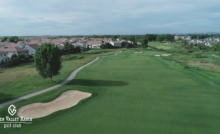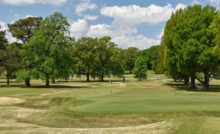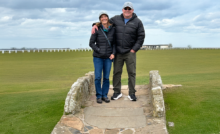Inside the Greens: Scott Mauldin, CGCS – Leading Golf Course Operations at Bayville Golf Club

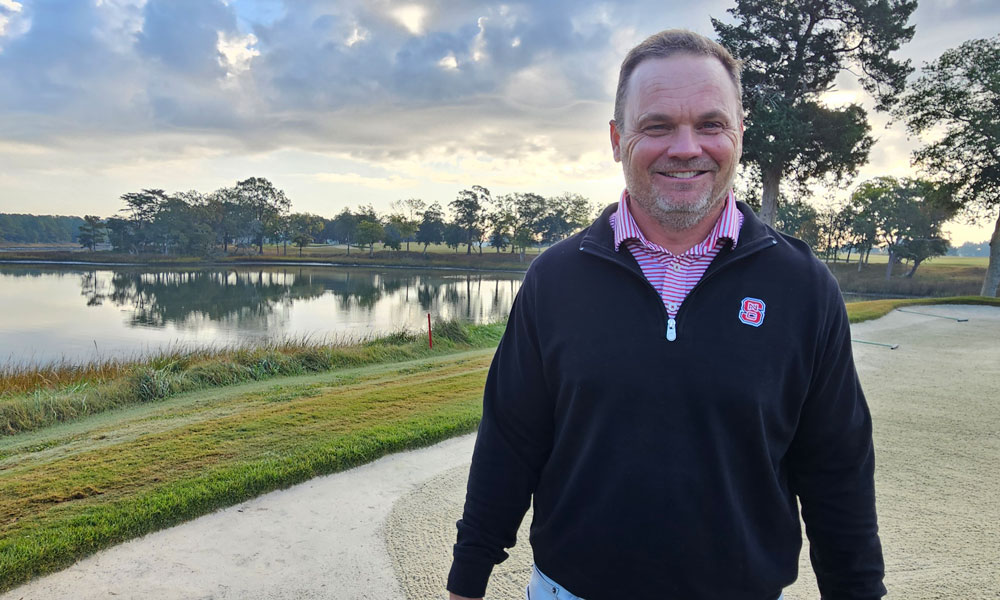
Scott Mauldin CGCS Bayville Golf Club
Scott Mauldin is a North Carolina native who achieved Certified Golf Course Superintendent status from the Golf Course Superintendents Association of America. In 2022 he led Bayville Golf Club through an extensive renovation of Tom Fazio’s original design by golf architect Andrew Green. The construction would include green sites with pure eclipse bent grass putting surfaces, bunker renovation to incorporate capillary concrete and G angle bunker sand, along with modifying the irrigation system. In 2023 he helped Bayville achieve ACSP for Golf Certification from Audubon International. The 300-member club’s classic links design captures the 268 acre former dairy farmland site into an “environmental showcase” along the Lynnhaven River.
1. What motivated your club to join the Audubon International Cooperative Sanctuary Program (ACSP) for Golf?
Bayville has always been proud of the beautiful environment it provides its membership to enjoy a game of golf, and of its commitment to maintaining a natural space that supports local wildlife. Becoming a certified Audubon Cooperative Sanctuary has been a goal for years. Since the club’s inception in 1995, our management practices have always focused on preserving the integrity of our shoreline, reducing our pesticide and water use, and improving and expanding our native areas. After Bayville underwent a massive renovation in 2022, the timing had never been more perfect. More confident than ever and led by management staff with similar values, our agronomy team works hard every day to prepare the course for play, as well as to find creative and cost-effective ways to enhance both the quality of the game and the surrounding environment.

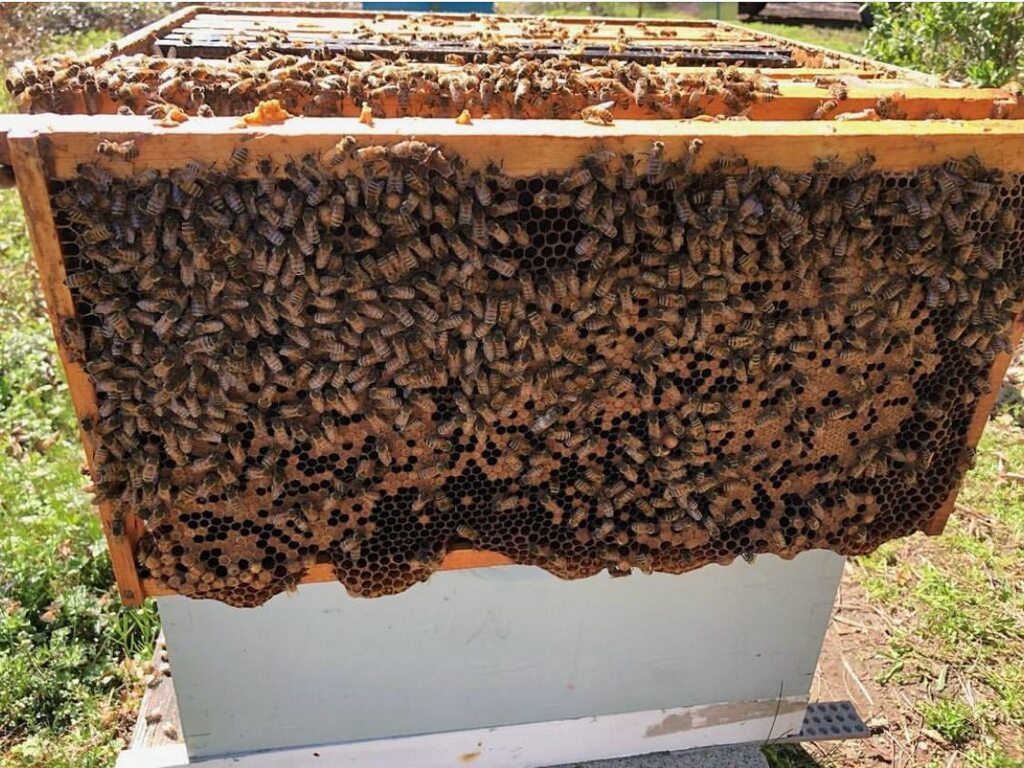
2. What did it take to achieve ACSP certification – how long was the process and what steps were involved?
For Bayville, much of the certification process simply required the documentation of sound, existing management practices. We began in March 2023 and were finally certified that November. The project gave us the incentive to create a solid wildlife inventory, for which we collaborated with sources from the Brock Environmental Center of the Chesapeake Foundation. Inspired, we installed nine new bluebird boxes on the property for a total of 11, all of which have been inhabited since. We have worked with a local beekeeper, Randy Watkins, to introduce several honeybee hives, which have elicited a lot of curiosity amongst members, been a great indication of the health of our course, and – of course – produced lots of delicious honey for members to enjoy. Additionally, we have plans to construct a new osprey platform off our 16th hole with the help of a local wood workers guild.
Starting from the display gardens at our clubhouse and performance center, we went hole-by-hole and created a plant inventory, too. During our course renovation, we took the opportunity to eliminate a high-intensity practice green and transform it into a low-maintenance pollinator garden, complete with a winding path to conveniently guide members from the 9th hole to the snack bar, before embarking on the second half of their game.
Related: Audubon Cooperative Sanctuary Program for Golf Courses: More Relevant than Ever
To ensure the quality of our integrated pond system, we tested our water four times in an 8-month period to establish a baseline. Each result demonstrated that our numbers are within the normal parameters and are, in fact, even aubetter where the water exits the property than where it enters the property.
We have upgraded our pesticide application record system to be more centralized and user-friendly, and we have converted all our MSDS from paper to digital to make amendments and additions easier. Further, we improved the shelving in our chemical storage facility.
3. What was most inspiring and/or surprising about the certification process for you and your crew?
The certification process forced us to slow down and really inventory our property and surroundings. It’s an incredible space! It’s easy to forget how special it is when you’re focused on doing a job. But, if you take a deep breath and look around, it really transforms your point of view. Bayville is a unique place – bordered by busy, urban Virginia Beach on one side, and set completely free on the other by the sprawling Lynnhaven River. By the endless horizon! The dichotomy is actually palpable.
The sights, sounds, and smells offer an escape, which is dependent upon our dedication to maintaining the natural atmosphere. We, as well as our members, know that as we’re enjoying the environment, we’re enjoying it alongside a multitude of living creatures, big and small, and that we are very lucky to do so.
4. What were/are the most challenging aspects of being certified and maintaining the standards required to achieve and retain that status?
Certification was a long process – mostly, the paperwork looked daunting, at least at a glance. But once we got started, we were on a roll. We took it one section at a time, as opposed to trying to tackle it all at once.
Now that we’re certified, we need to remain vigorous and creative, to continuously look for ways to improve while maintaining our identity, integrity, and character – all of which are very important to us.
5. How has Certification been shared with your members/customers/community, and what benefits has such exposure brought your way?
We shared our certification success via newsletter and email. It’s also announced via signs on our property, and by an Instagram account managed daily by Assistant Superintendent, Baxter McEnerny which explains our practices and celebrates our accomplishments.
Likewise, Landscape Manager, Carrie Muhleman, is an adjunct horticulture instructor at Tidewater Community College, where she shares information with her students regarding the Audubon Cooperative Sanctuary standards, as well as Bayville’s certification process and overall management practices.
Networking and communication has improved our reputation as a golf course in general, but it has especially increased the confidence of our neighbors. They have no doubts regarding our dedication to the environment. Being located on the Lynnhaven River, it is very important to us to be as transparent and communicative as possible to secure the trust of those around us who share waterway for recreation and for commerce.
Certification has also connected us with members of the community that share our interests and values. Several have graciously volunteered time, supplies, and products to help us implement ecological restoration projects. For example, Kathy DeShazor, of Wild Birds Unlimited located in Chesapeake, Virginia, donated our bluebird boxes. We, and they, are very enthusiastic.
6. What would you share with other superintendents and course managers who are considering joining the Audubon International ACSP program?
Being involved with the Audubon International ACSP Program provides a streamlined opportunity to manage your facility with a better game plan and understanding of the impact to the course, to the property, and to the surrounding environment. We, as Superintendents and Managers, have a responsibility to lead and educate our staff, Club members and community. ACSP Certification provides several different platforms to share our work and the positive impact we make when managing the property.
7. What is the best guidance or tip(s) you have received pertaining to being a superintendent and overseeing the golf course agronomy/maintenance department? (And from whom?)
It may not be just for the course, but also with managing people. Take care of the people you have as they are the biggest asset you have. You can have all the equipment and tools in the world, but if the staff does not feel cared for and respected, it does not matter. This also helps the staff feel their importance to the property, which relates to more pride to the operations. This valuable advice was given by Bill Anderson, CGCS.
Recent Posts
The Rare Condor: What It Means for Golf and the Course Maintenance Behind It
Imagine this: you're on a par-5, having just hit your second shot toward the green.…
DENIOS Under Bench Cabinet Provides Safe Storage of Lithium-Ion Batteries
DENIOS introduces asecos under bench cabinets for the safe storage of undamaged lithium-ion batteries. They…
True Blue Golf Club, One of America’s Top 100 Resort Courses, Acquires Steve Dresser Golf Academy
True Blue Golf Club has acquired the Steve Dresser Golf Academy, a renowned instructional facility…
Memphis Country Club: A Golfer’s Study in Precision and Tradition
If you have ever teed it up at Memphis Country Club, you know this isn’t…
Superintendents Online Turf Directory – EVERYTHING TURF
Our online directory, directory.GolfCourseTrades.com is the go-to resource for the busy superintendent. It is your opportunity…
Foley Company attains GCSAA Silver Partner Status
Foley Company, a leader in turf equipment innovation and technology, affirms its support of the…
